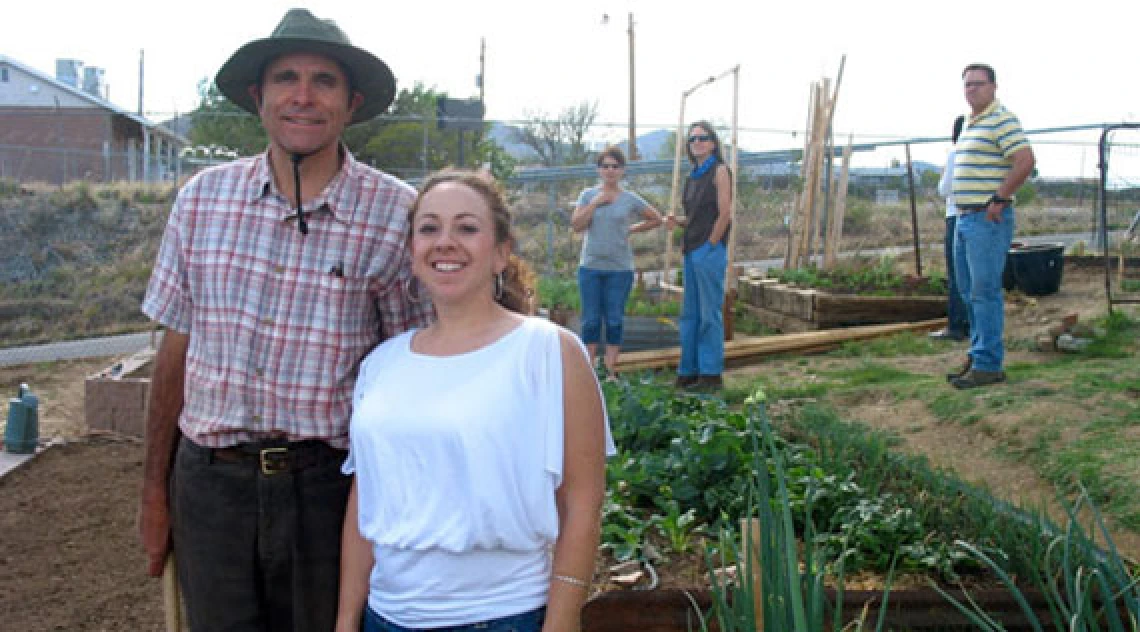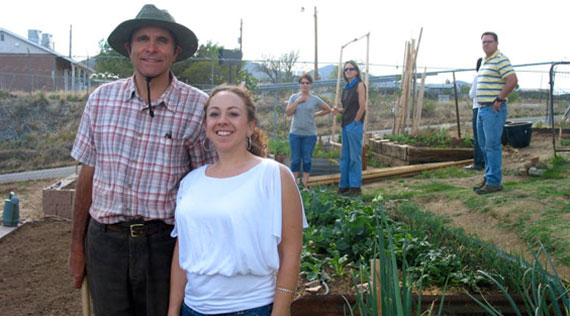Ramírez-Andreotta Receives $2.26M NSF Grant focused on Citizen Science

 Our congratulations to Dr. Mónica Ramírez-Andreotta, Research Translation Core Director for the University of Arizona Superfund Research Program (UA SRP), who recently received a $2.26M Advancing Informal Science Learning Program Grant from the National Science Foundation. The grant is entitled: “Advancing Informal Environmental STEM Literacy & Learning: A Co-Created Citizen Science Rainwater Harvesting in Underserved Communities”. Ramírez-Andreotta will work with a team of researchers from the University of Arizona (Dr. Leif Abrell, Arizona Laboratory for Emerging Contaminants; Dr. Jean McLain, Department of Soil, Water and Environmental Science - SWES / Water Resources Recearch Center and Dr. Rob Root, SWES, Environmental Biochemistry Group) and the Sonora Environmental Research Institute, Inc. (Dr. Aminata Kilungo). The 5-year grant began September 15, 2016.
Our congratulations to Dr. Mónica Ramírez-Andreotta, Research Translation Core Director for the University of Arizona Superfund Research Program (UA SRP), who recently received a $2.26M Advancing Informal Science Learning Program Grant from the National Science Foundation. The grant is entitled: “Advancing Informal Environmental STEM Literacy & Learning: A Co-Created Citizen Science Rainwater Harvesting in Underserved Communities”. Ramírez-Andreotta will work with a team of researchers from the University of Arizona (Dr. Leif Abrell, Arizona Laboratory for Emerging Contaminants; Dr. Jean McLain, Department of Soil, Water and Environmental Science - SWES / Water Resources Recearch Center and Dr. Rob Root, SWES, Environmental Biochemistry Group) and the Sonora Environmental Research Institute, Inc. (Dr. Aminata Kilungo). The 5-year grant began September 15, 2016.
The research group will train historically underrepresented populations residing in environmentally compromised areas of Arizona, both urban and rural, on how to monitor the quality of their harvested rainwater, garden soil, and home garden crops. The project aims to: (1) co-produce environmental monitoring exposure and risk data that will be relevant to the participant's lives; (2) increase the community’s involvement in environmental decision-making; and (3) improve environmental health education and literacy in these underserved communities.
According to Ramírez-Andreotta, “A missing element in environmental education programs is a concerted effort by communities, organizations, government, and academic stakeholders to build meaningful partnerships and cultivate informal science learning opportunities via public participation in environmental research. This not only makes scientific information more readily available, it also engages community members in the process of scientific inquiry, synthesis, data interpretation, and the translation of results into action.” In order to build trust and make sure that the citizen science data directly informs environmental policy, the project team will build a multi-stakeholders advisory board. While community members are collecting samples, Ramirez-Andreotta and her team will assess the learning and action-based outcomes of the project and how a citizen science and community-engaged approach affects informal science learning (learning that occurs outside the classroom) in underserved communities.
The UA SRP is excited to support Ramírez-Andreotta in this important effort.

